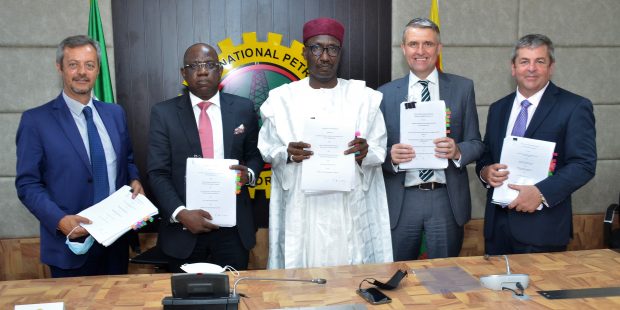As the war between Russia and Ukraine rages on, the European Union (EU) is turning its attention to Nigeria and other African energy giants with abundant reserves for alternative energy sources.
Russia has been the major supplier of gas to the rest of Europe.
For decades, Russia has been the major supplier of gas to the rest of Europe.
However, as the recent conflict continues in Ukraine, European gas prices have soared and there is the likelihood that Moscow could shut off supplies of gas, widely considered part of President Vladimir Putin’s leverage against the West in his obsession with Ukraine.
EU Ambassador to Nigeria, Samuela Isopi, together with France, Italy, Portugal, and Spain’s ambassadors, visited on Monday the headquarters of the NNPC and met with the company’s management.
The visit came as Europe tries to reduce its reliance on Russian gas.
“We are not only major clients for Nigeria, we are also major partners in the oil and gas sector because some of the companies that are working with you are from Europe.
So we share the same interest and the same objectives, “the EU Ambassador in Nigeria, Samuela Isopi, said.
To avoid self-inflicted economic punishments, the EU is discussing medium- and long-term solutions with African countries to replace Russia’s average 380 million cubic meters per day of liquefied natural gas (LNG).
This amounts to 140 billion cubic metres, or 45 percent of the EU’s total gas consumption in a year.
According to a statement by the NNPC spokesperson, the group managing director assured the European delegation that the company would continue to deepen its relationship with EU companies in Nigeria.
Other experts say new and existing pipelines between key gas fields in the west and north Africa will be fundamental for Europe’s energy future.
These include the trans-Saharan gas pipeline linking Nigeria with Europe, the Maghreb-Europe gas pipeline linking Algeria with Spain, the Medgaz pipeline linking Algeria and Spain, and the Greenstream pipeline linking Libya with Italy.
Nigeria and Algeria are the biggest African liquified natural gas suppliers to the old continent.
The Nigerian National Petroleum Corporation (NNPC) chief executive assured the European delegation that the company was keen on increasing gas supply to the global market
Nigeria authorities say the country has a proven natural gas reserve of 209.5 trillion cubic feet (TCF) as of January 2022.
He added, “We are also supporting UTM Offshore Limited by encouraging the local investor to get the development of Nigeria’s first Floating Liquefied Natural Gas (FLNG) project completed, which will add an additional 2.2 million tonnes of gas per annum to the market.”
NLNG also has more capacity to put more gas on the market.
“Beyond Nigeria, the EU is also building energy bridges with Egypt, as it is not only a gateway and source of regular energy but also includes new and renewable energy sources. Revenue from oil and gas accounts for about two-thirds of Nigeria’s funding.

